How does Obama get along with Latin America?
- Published
The diplomatic thaw between the US and Cuba has been the key issue in the run-up to this year's Summit of the Americas in Panama. But what are US relations with other countries in the Americas like?
In the pictures below, red means tempers are frayed, green means it's all systems go and the arrows denote the direction in which the relationship is heading.

Venezuela
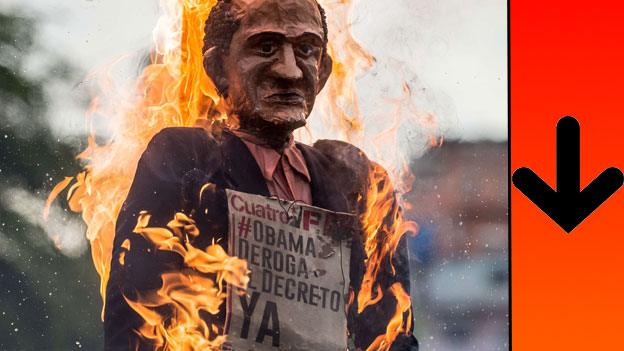
President Nicolas Maduro has accused the US of meddling in the country's growing economic troubles and plotting to remove him, including an alleged plot by Vice-President Joe Biden during a Caribbean energy summit.
The countries have expelled each other's diplomatic staff repeatedly, and have not exchanged ambassadors in almost six years.
In March, US sanctioned Venezuelan officials it accused of human rights violations and corruption following mass protests in the country last year. Mr Maduro harshly criticised the sanctions and hailed the officials as heroes against imperialism.
But the US recently sent an experienced envoy, Tom Shannon, to Caracas. "There is a desire to take some of the venom out" of the relationship, says Dr Cynthia Arnson, director of the Latin American programme at Wilson Center.
Personal relationship with Obama: Non-existent. Following the new sanctions, Mr Maduro said Mr Obama was "personally taking on the task of defeating my government".

Ecuador
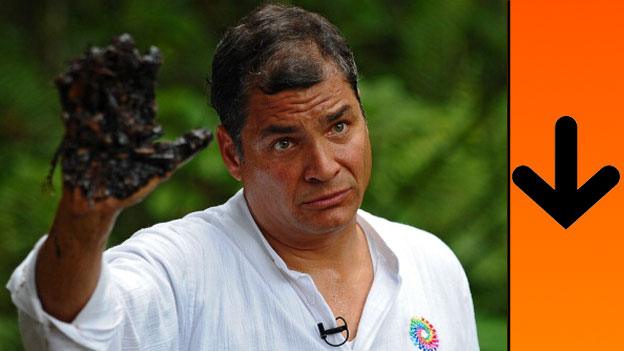
The US ambassador to Ecuador was kicked out of the country over a Wikileaks cable in 2011 in which she discussed corruption in the Ecuadorian national police.
But just over a year later, another US ambassador had returned to Quito.
In 2013, Ecuador backed out of a preferential trade pact, saying the US was using it as blackmail to prevent them from considering asylum to NSA leaker Edward Snowden.
The country has also expelled US drug and aid officials.
Foreign Minister Ricardo Patino recently suggested President Rafael Correa might not attend the summit over a "lack of respect" from the US towards Latin and South America.
Personal relationship with Obama: Mr Correa has said he would like to have better relations with America but he likened Mr Obama saying the US was "exceptional" to Nazi rhetoric.

Argentina
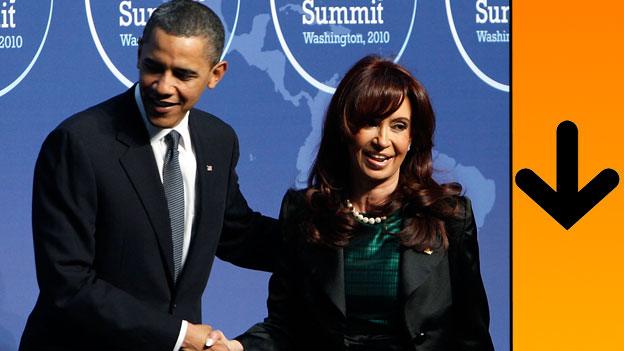
An already tense relationship has been further strained as Argentina battles creditors in the US courts.
Last year Argentina defaulted on part of its debts owned by US hedge funds which purchased bonds cheaply in 2001 and are demanding a full pay out.
President Cristina Fernandez de Kirchner has called the debtors "vultures" and has criticised the US government for its hands-off position in the dispute.
Personal relationship with Obama: Ms Kirchner held a bilateral meeting with Mr Obama in 2011 and has spoken to him in sideline talks in various international summits - but she is likely to continue placing diplomatic and personal pressure on the administration until the debt issue is resolved.

Cuba
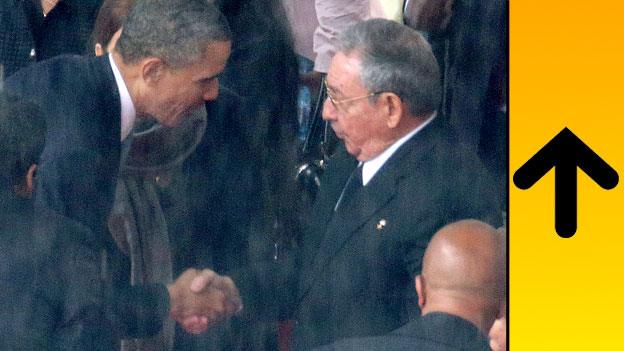
In a surprise and significant shift in December, Mr Obama announced the US would re-establish formal diplomatic ties with Cuba - ones of its closest neighbours and oldest Cold War foes.
The move ended a potential stand-off at the summit, with many countries previously threatening to skip the talks if Cuba was not invited. The last summit ended without an official declaration for the same reason.
Mr Obama has loosened certain restrictions and talks between the two countries to open embassies are ongoing.
Secretary of State John Kerry recently met his Cuban counterpart in Panama, the highest level meeting in 50 years.
Cuba's inclusion on the US state-sponsor of terrorism list is a sticking point, as well as the embargo.
Personal relationship with Obama: Mr Obama's shook Raul Castro's hand during the funeral of Nelson Mandela, then spoke to him on the phone in both December and before leaving Washington for Panama.
Lead state department Cuba envoy Roberta Jacobson has said there would be "interaction" between the two leaders at the summit. It will be very closely watched.

Brazil
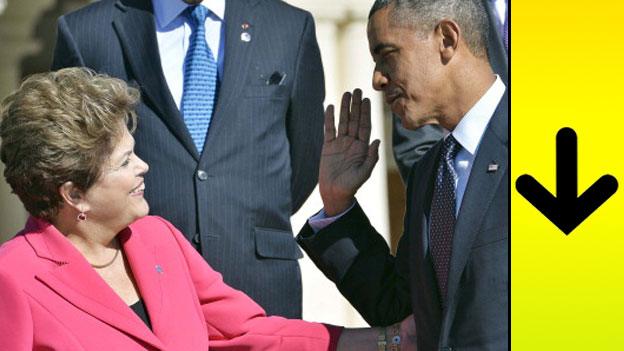
Brazil's importance in South America and the size of its economy means the US has sought the country out for increased defence and economic ties.
But the relationship was ruptured after reports of National Security Agency (NSA) surveillance in Brazil, including the personal data of President Dilma Rousseff and state-owned oil firm Petrobras.
But Ms Rousseff appears to have backed off somewhat after a scathing speech at the UN against US spying, telling CNN in 2014 that the Obama administration was taking unspecified "steps" over Brazil's concerns.
Personal relationship with Obama: Ms Rousseff cancelled her official state visit to the US after the NSA scandal, but the administration is looking to patch things up. Mr Biden visited Ms Rousseff twice in a year and Mr Obama called to congratulate her on re-election.
Reuters reports the US has extended an invitation to the Brazilian president to visit again in 2015 or 2016.

Mexico
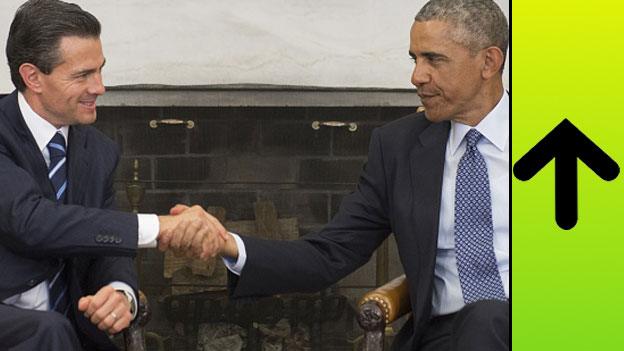
During an official visit by President Enrique Pena Nieto in January, Mr Obama called Mexico "one of our closest allies, neighbours and friends".
Mexico was the US's third largest trading partner in 2014 and more than $20bn (£13.6bn) in remittances is directed back to Mexico each year from families working in the US.
Mexico wants the US to reform its immigration laws, which will impact on millions of Mexicans living in the US, and the US has put some pressure - critics say not enough - on Mexico to combat organised crime and violence.
The Cuba thaw has also won Mr Obama accolades from Mexico.
Personal relationship with Obama: Mr Pena Nieto and Mr Obama seem to get along well. Amid their own political troubles at home, they have used bilateral meetings to focus on the "good news" of economic exchange between the two countries.

Colombia
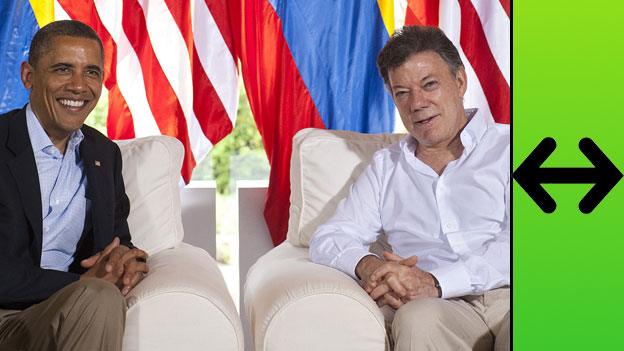
There has been "enormously close co-operation" since the 1990s between US and Colombia, Dr Arnson says, including more than $9bn from the US to fight drug trafficking and Farc rebels under Plan Colombia.
A trade deal in 2011 increased economic ties, even though the US was already Colombia's top trade partner.
Now Colombia's government and the Farc are involved in ongoing negotiations to end more than five decades of fighting.
The US supports the negotiations and has said it will continue to be a strong partner of Colombia.
But Mr Santos has sought to repair relations with more anti-US countries like Venezuela, Dr Arnson adds.
Personal relationship with Obama: President Juan Manuel Santos made an official visit to the White House in late 2013 where each warmly praised the alliance. The last time the two leaders seemed to be at odds was a jibe from Mr Santos about Colombia winning against the US in the World Cup.
